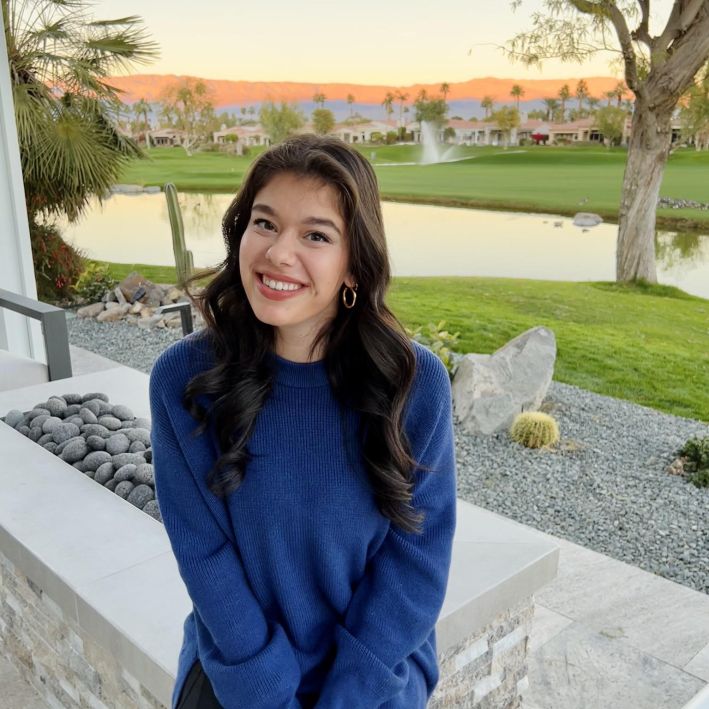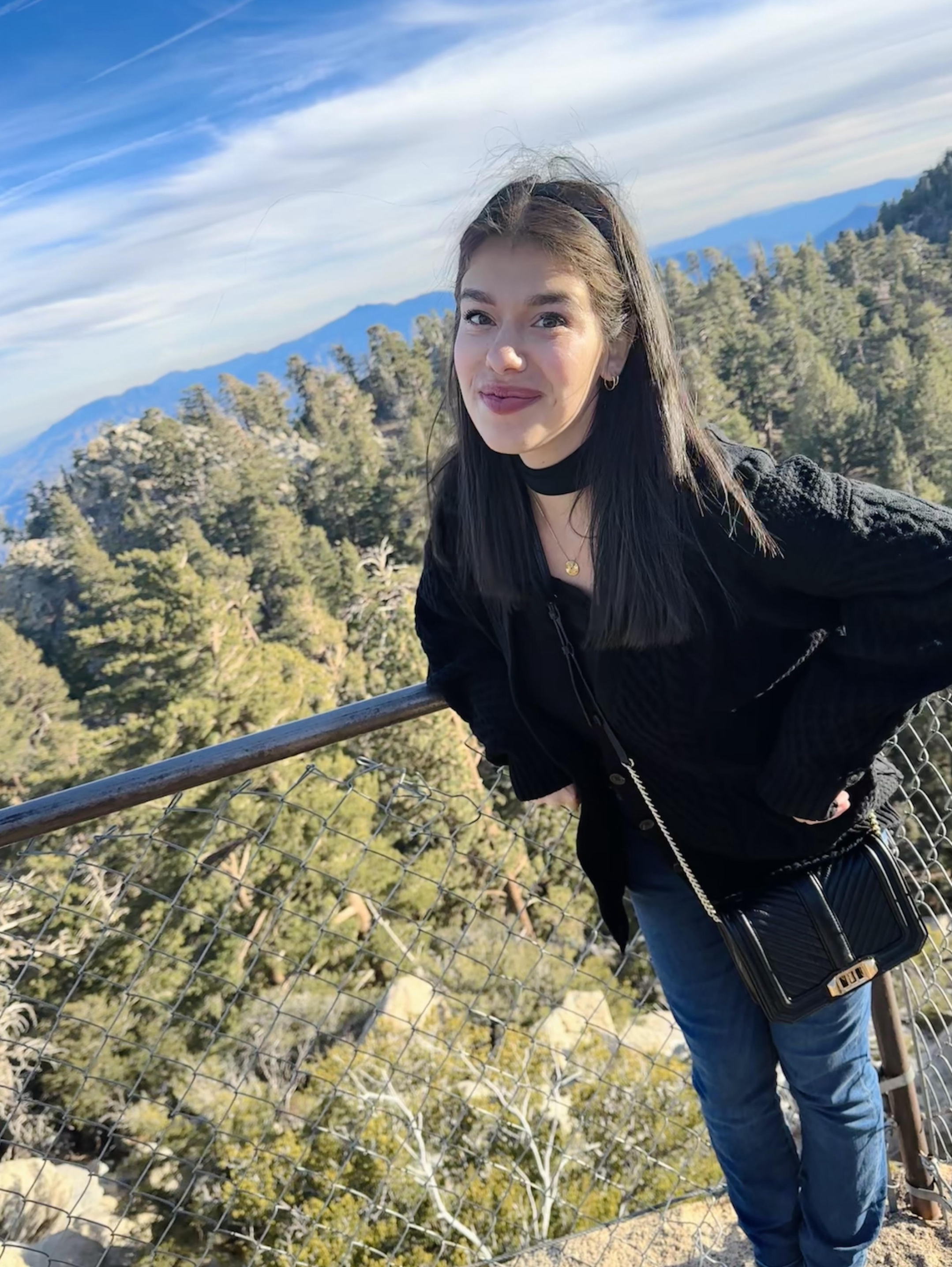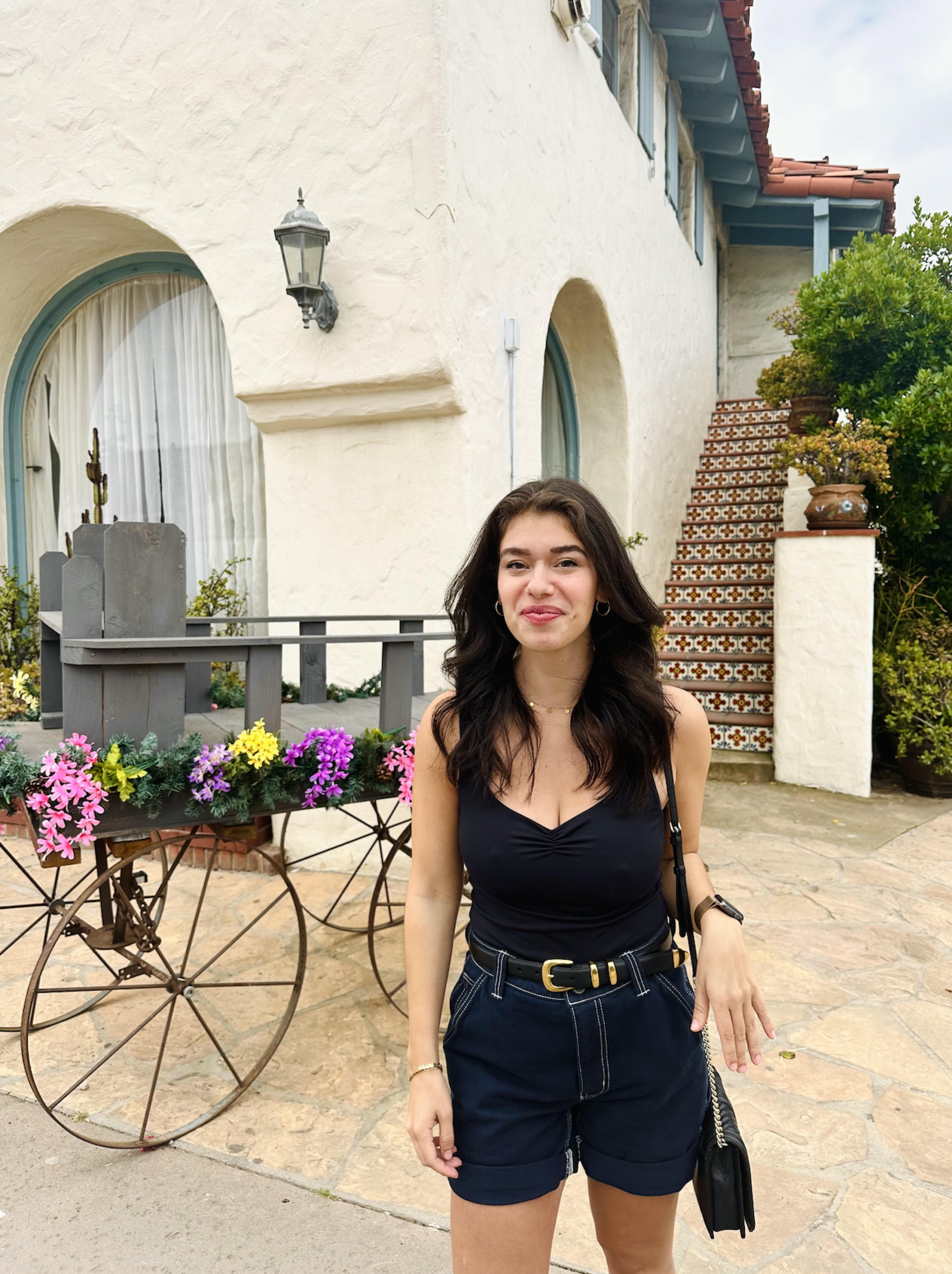From Confusion to Acceptance
My journey with asexuality and sexual orientation OCD.
Escrito por Mara Ashley

01 Mara began questioning her sexuality in elementary school.
02 Growing up, she was often confused as to why she wasn’t experiencing the same feelings as her peers, while also dealing with undiagnosed OCD.
03 It wasn’t until early adulthood that she realized she was aromantic, and received the support she needed.
I first realized I was different in elementary school. I was sitting in a circle with some girls during recess when one of them said, “Let’s go around and say what boy we like!” They all giggled and smiled, as if everyone was waiting to discuss this topic.
“We’re supposed to like boys?” I thought to myself.
As each girl revealed their crush one by one, I felt compelled to do the same, and quickly scrambled for a response. My best friend had to answer before me, so I should probably just pick whichever boy she liked, right? Once I repeated her answer, I was relieved when everyone giggled in excitement. I passed the test.
I didn’t think much of that moment until three years later, when I was in 6th grade. There was a girl in 8th grade who was openly gay. When I saw her, I thought to myself, “Wait. I’ve never liked a boy. Could I be gay too?”
This thought immediately launched me into a state of panic. Although I didn’t realize it until I was diagnosed with OCD a decade later, this is where my Sexual Orientation OCD began. I would lay awake at night, imagining scenario after scenario of guys interacting with me. I wouldn’t allow myself to fall asleep until I arrived at a scenario I deemed “good enough”.
Throughout high school, I would pick a new guy to “like” every month. I would force myself to like certain traits to prove to myself I was undeniably straight. Eventually, I met a guy I felt comfortable with — I loved our conversations and craved his attention. Even though I panicked when he asked me out, I loved spending time with him. So he became my first boyfriend.
During our short relationship, I thought of him more as my favorite person than I did my boyfriend, which calmed me down. But for the rest of high school and college, any time a guy showed interest in me, I was sent into a state of OCD-fueled panic.
Once I graduated college, I had less distractions and was determined to find answers. If I didn’t like guys, I had to like girls, right? I reassured myself that it’d be okay if I was gay. I just wanted to fit in with everyone around me who was talking about dating and gushing over people they liked.
A couple months into my mission, I met a girl whose energy was infectious. Her sexual forwardness was a welcomed change for me since I was desperate for answers about myself. When we became physically intimate, I felt indifferent to it instead of the paralyzed feeling I’d get with guys, so I declared this as proof that I was gay.

Coming out to people over the next five years was terrifying, but it felt better than lying about liking guys. Talking about dating was social currency, and I finally had some.
However, once the initial high wore off, I realized something didn’t feel right. I was confused why people were moaning when they’d hook up, or why it was so hard for people to stay celibate on dating shows like Too Hot to Handle. Additionally, all of my relationships would end because I felt like dating was a chore or my partner told me they didn’t feel physically desired by me.
After countless dates and not caring for physical intimacy no matter how aesthetically attractive I thought my partner was, I realized I didn’t even know what sexual attraction was because I’ve never felt it. Sex was something I had to do instead of something I wanted to do.
Realizing I was asexual was a) terrifying, because it meant I would have to come out again and b) comforting, because this label made more sense. However, I still felt like something was missing — something that had more to do with emotions rather than physical attraction.
One night, during my usual bedtime scroll through Reddit for answers, I came across a word I had never seen before: aromantic - someone who experiences little or no romantic attraction.
My heart dropped. It perfectly described what I had felt as early as third grade. This explains why I’ve never had a crush on anyone or why I feel numb after leaving a good date.
Romantic love is something that society values the most, and I began to realize I will never experience it. Additionally, I had never met anyone who was asexual or aromantic. Examples in the media are extremely hard to come by.
Was I robbed of having a full life because I was born this way? Is my life not as valuable since I won’t share it with a partner? Why can’t I feel what other people feel? Where do I even belong? What’s wrong with me?
I felt like an alien. Months and months of anxiety and hopelessness continued. I once woke up in the middle of night with a panic attack because I couldn’t picture a future where I was happy. I was desperate to escape my new reality.

However, once I had the courage to open up to my family, I finally felt like I wasn’t going through this alone. Although everyone in my family is straight, explaining that what I feel is what they feel about the same gender, helped them further understand my experience. I also restarted Zoloft, and realized I didn’t have to respond to every intrusive thought from my OCD. Slowly but surely, I found glimpses where I could accept myself just the way I am.
Once I had the courage to tell my closest friends how I had been feeling, my confidence increased instead of feeling like I was constantly hiding something about myself. I also found a therapist who was familiar with asexuality and aromanticism. When describing to my therapist how freeing it felt to tell others, she pointed out Brené Brown’s quote, “Shame cannot survive being spoken.”
Sharing how I felt gave me hope. Being vocal and proud instead of ashamed for my differences has transformed me. My hope is that asexuality and aromanticism can be a more visible orientation, so that anyone who resonates with these identities can feel pride instead of isolation. Just because some people’s happiness involves a romantic partnership, doesn’t mean mine has to. I can live a fulfilling life just the way I am — all I have to do is be my most authentic self.
<>
Here are some resources that have helped me learn more about asexuality and aromanticism:
- Yasmin Benoit (@theyasminbenoit)
- Freed from Desire podcast series by Aline Laurent-Maynard
- I Am Ace by Cody Daigle-Orians (@acedadadvice)
ABOUT THE AUTHOR
Mara is a product designer currently living in Austin, Texas. She is passionate about sharing her experiences so others who relate can feel less alone. You can find her on Instagram @maraarose
Apoya nuestro trabajo
Nuestra misión es cambiar la manera en que el mundo percibe la salud mental.



















